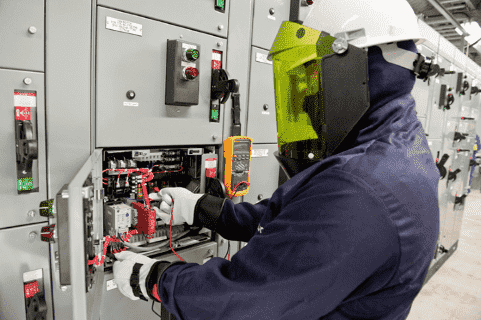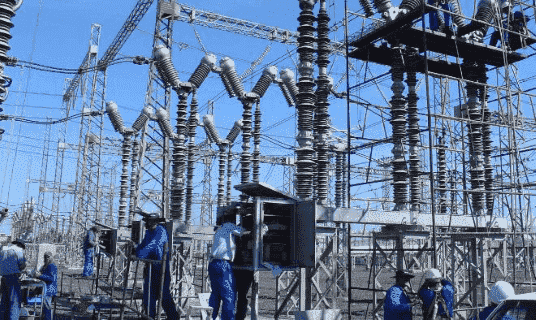COURSE OVERVIEW
EE0320 : Fault Analysis in Electrical Networks & Distribution Cables: Power Systems Troubleshooting

OVERVIEW
| COURSE TITLE | : | EE0320 : Fault Analysis in Electrical Networks & Distribution Cables: Power Systems Troubleshooting |
| COURSE DATE | : | Nov 03 - Nov 06 2024 |
| DURATION | : | 4 Days |
| INSTRUCTOR | : | Mr. Ahmed Hayajneh |
| VENUE | : | Al Khobar, KSA |
| COURSE FEE | : | $ 4500 |
| Request For Course | ||
OTHER SCHEDULED DATES
| Date | : | Feb 02 - Feb 06 2025 (5 Days) | Location | : | Dubai, UAE | Classroom Fee (US$) | : | $ 5500 | Course Info |
| Date | : | May 04 - May 08 2025 (5 Days) | Location | : | Doha, Qatar | Classroom Fee (US$) | : | $ 6000 | Course Info |
| Date | : | Aug 04 - Aug 08 2025 (5 Days) | Location | : | Abu Dhabi, UAE | Classroom Fee (US$) | : | $ 5500 | Course Info |
| Date | : | Nov 02 - Nov 06 2025 (5 Days) | Location | : | Al Khobar, KSA | Classroom Fee (US$) | : | $ 5500 | Course Info |
Course Description
This practical and highly-interactive course includes various practical sessions and exercises. Theory learnt will be applied using our state-of-the-art simulators. The detection of faults on electrical distribution systems has been one of the most persistent and difficult problems facing the electric utility industry. The performance and characteristics of electrical system configurations are vital factor in reducing or increasing the effect of faults on the system as earthing system, switch gear, protective relays, active and reactive power generation, etc. Protective systems are designed to sense faults and initiate fault clearing in a timely manner while minimizing the affected area. Protective relays are used to sense the faults and initiate circuit breakers tripping. Alternatively, fuses are used on the distribution system to sense and clear faults. Electrical faults can cause severe damage when not interrupted promptly. In some cases, high-impedance fault currents may be insufficient to operate protective relays or blow fuses. Standard overcurrent protection schemes utilized on secondary distribution at some industrial, commercial and large residential buildings may not detect high-impedance faults, commonly called arcing faults. In these cases, more careful design techniques, such as the use of ground fault circuit interruption, are required to detect arcing faults and prevent burndown. When a shortcircuit fault occurs, the fault path explodes in an intense arc. Local customers endure an interruption and customers farther away, a voltage sag; faults cause most reliability and power quality problems. Faults kill and injure line operators. Crew operating practices, equipment and training must account for where fault arc are likely to occur and must minimize crew exposure. When faults occur, we have ways to reduce their impacts. This course focuses on the general characteristics of faults and specific analysis of common fault types with suggestions on how to reduce them. This course is designed to present methods of Electrical Fault analysis, causes, detection and remedies in Electrical Networks and Distribution Cables, particularly with the aid of a personal computer and Power System Simulator. The approach is designed to develop participant?s thinking process, enabling them to reach a sound understanding of a broad range of topics related to electrical faults, while motivating their interest in the electrical power industry. The course includes many case studies describing present day, practical applications. Those case studies and exercises will be solved in the class.
TRAINING METHODOLOGY
This interactive training course includes the following training methodologies:
LecturesWorkshops & Work Presentations
Case Studies & Practical Exercises
Videos, Software & Simulators
In an unlikely event, the course instructor may modify the above training methodology for technical reasons.
VIRTUAL TRAINING (IF APPLICABLE)
If this course is delivered online as a Virtual Training, the following limitations will be applicable:
| Certificates | : | Only soft copy certificates will be issued |
| Training Materials | : | Only soft copy materials will be issued |
| Training Methodology | : | 80% theory, 20% practical |
| Training Program | : | 4 hours per day, from 09:30 to 13:30 |
RELATED COURSES

EE0250 : Electrical Distribution Systems - Fundamental
- Date: Jan 05 - Jan 09 / 3 Days
- Location: Istanbul, Turkey
- Course Details Register

EE1030 : Certified Electrical Safety Compliance Professional (NFPA - CESCP Exam Preparation Training)
- Date: Jan 05 - Jan 09 / 3 Days
- Location: Al Khobar, KSA
- Course Details Register

EE0050 : HV/MV Substation Design, Installation, Commissioning, Testing, Operation, Control & Maintenance
- Date: Jan 05 - Jan 09 / 3 Days
- Location: Doha, Qatar
- Course Details Register

EE1002 : Classification of Locations for Electrical Installations at Petroleum Facilities (API 500/ API 505/ API RP 14FZ)
- Date: Jan 05 - Jan 09 / 3 Days
- Location: Doha, Qatar
- Course Details Register
